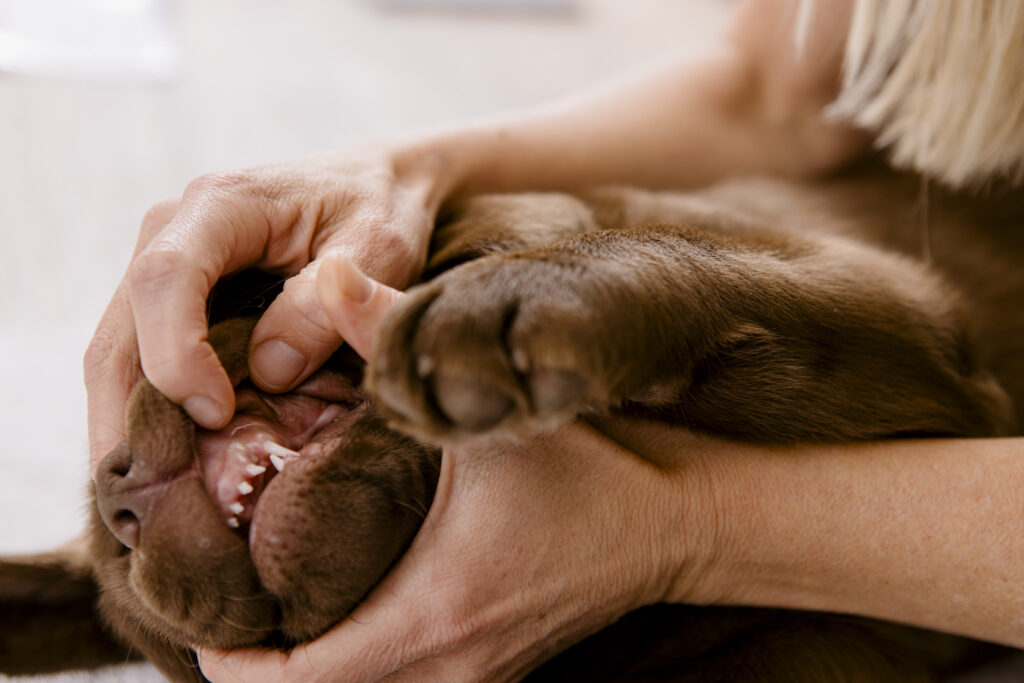Dental care for dogs and cats: a guide to healthy mouths

Good dental health is essential for your pet’s overall well-being. Dental disease can cause pain, affect eating habits, and even lead to serious health issues involving the heart, liver, and kidneys. By staying on top of your dog or cat’s oral hygiene, you can keep them comfortable, healthy, and happy.
Why dental care matters
Cats and dogs can suffer from many of the same dental issues as humans, including:
- Periodontal disease
- Tooth decay
- Gum infections
- Plaque and tartar buildup
These problems don’t just cause bad breath – they can lead to tooth loss, chronic pain, and bacteria entering the bloodstream, which may harm vital organs.
Common signs of dental problems
Keep an eye out for:
- Persistent bad breath
- Swollen or bleeding gums
- Difficulty eating or chewing
- Drooling more than usual
- Discoloured or loose teeth
If you notice any of these symptoms, book a dental check-up with your vet as soon as possible.
How to care for your pet’s teeth
1. Regular brushing
Brushing your pet’s teeth with a pet-specific toothbrush and toothpaste is the gold standard for dental care.
- Start slowly and make it a positive experience.
- Daily brushing is best, but even a few times a week can make a big difference.
- Only start brushing once your pet’s mouth is healthy – brushing an already sore mouth can cause pain and make things worse.
2. Dental chews and toys
Dental treats and chew toys can help reduce plaque buildup. Look for products approved by veterinary dental associations for safety and effectiveness.
3. Professional dental cleaning
Regular professional cleanings by your vet may be essential. They can remove tartar, check for underlying problems, and treat any dental disease before it gets worse.
4. Diet and nutrition
Feeding a balanced diet – including specially formulated dental diets – can help control plaque and tartar. Ask your vet which diet is best for your pet.
When to start?
Begin getting your pet used to mouth handling early in life, even before brushing starts. Actual brushing should begin after adult teeth com in – around 6-7 months of age. Early introduction helps accept detnal care as a part of their routine.
A note on bad breath
The most common cause of bad breath in pets is dental disease due to odour-producing bacteria in the mouth. Other causes may include oral injuries, infections or even problems in the chest of abdomen. Puppies and kittens may also have temporary bad breath during teething. If you pet’s breath suddenly worsens or smells unusual, it is best to consult a vet promptly. Our Aussie vets are online 24/7 if you need help with your pets teeth or bad breath!
The Bottom Line
Just like us, pets need daily dental care to keep their mouths clean and healthy. Regular brushing, dental chews, professional cleaning and early intervention can prevent pain, protect their overall health and save you the cost of expensive dental treatments in the future. Plus – fresh breath makes those cuddles much more pleasant!